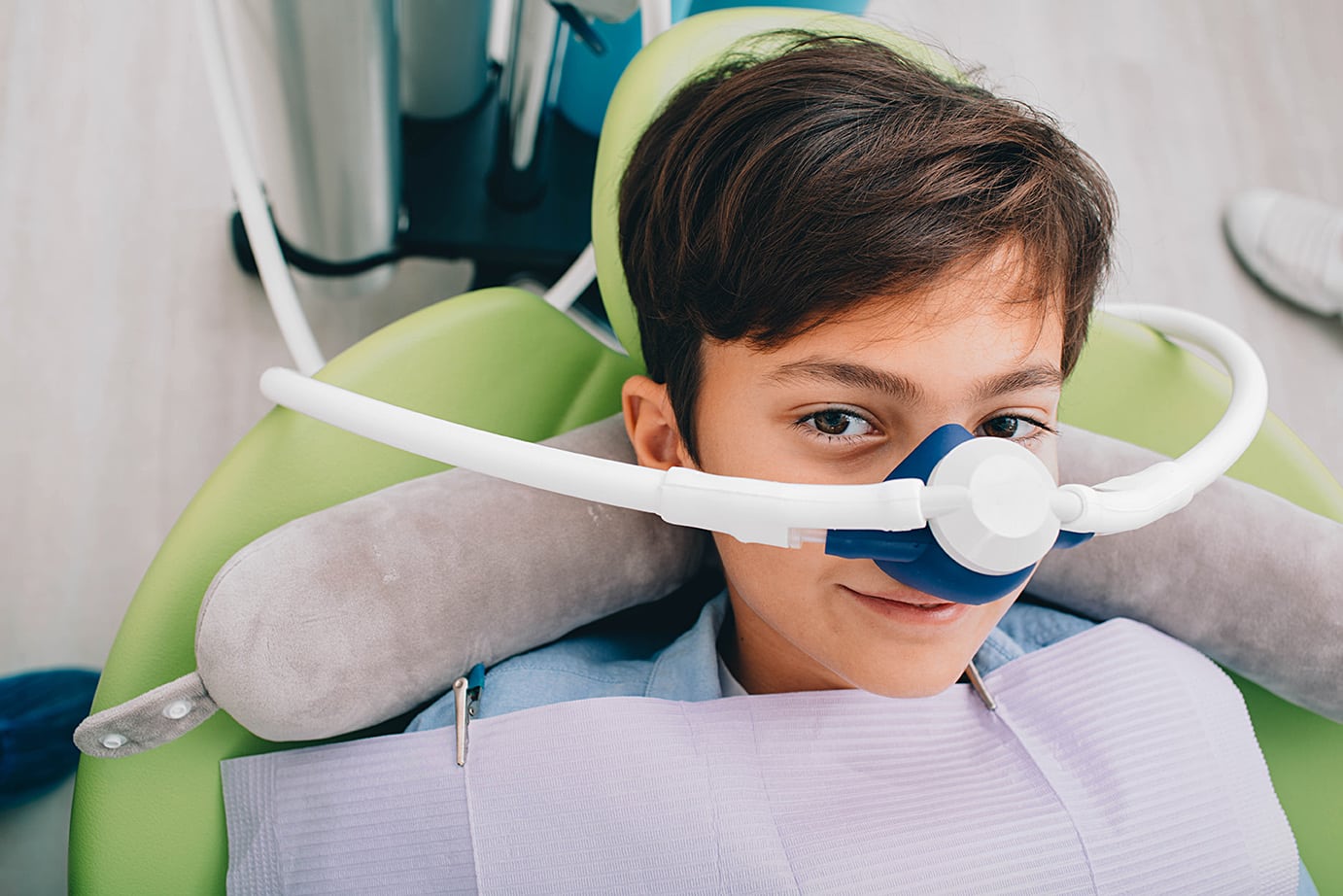
What Sedation Options Are Available for Children’s Dental Procedures?
At Honey Bee Pediatric Dental Co., we understand that dental visits can be stressful for both children and their parents. Sedation dentistry allows our team to ensure that your child’s dental experience is as comfortable and stress-free as possible. Whether your child is anxious about their appointment or needs a more complex procedure, sedation dentistry allows us to create a relaxing environment where they can feel at ease. With locations in Lawrence, KS, and Lenexa, KS, we proudly serve our communities by offering compassionate pediatric dental care.
Why Is Sedation Used in Pediatric Dentistry?
Sedation dentistry plays a vital role in helping children manage anxiety, fear, and discomfort during dental procedures. For many children, a trip to the dentist can feel overwhelming, especially when they face a procedure that’s unfamiliar or involves longer treatment times. Sedation allows our pediatric dentists to perform necessary dental work in a calm and controlled manner, ensuring your child’s comfort throughout the process.
What Types of Sedation Are Available for Children’s Dental Procedures?
We offer a range of sedation options to suit each child’s unique needs. Here are the most common types of sedation used at Honey Bee Pediatric Dental Co.:
- Nitrous Oxide (Laughing Gas): A mild, inhaled sedation that helps your child relax. It works quickly and wears off immediately after the procedure, leaving your child calm and comfortable.
- Oral Sedation: A prescribed medication given before the procedure to help your child relax. They will remain awake but feel much more at ease.
- IV Sedation: Administered through an IV for deeper sedation during longer or more complex procedures. It gives our dentists more control to keep your child comfortable.
- General Anesthesia: A deep sedation that completely puts your child to sleep for complex or lengthy procedures. Administered in a hospital setting with a specialized team to ensure safety.
Is Sedation Safe for Children During Dental Procedures?
Sedation is an essential tool in pediatric dentistry, but we prioritize safety above all. At Honey Bee Pediatric Dental Co., we follow strict protocols to ensure your child’s well-being during sedation. Our team carefully monitors your child throughout the entire procedure, adjusting sedation levels as needed to maintain a safe and comfortable experience. We understand that every child is unique, which is why sedation is personalized based on factors such as your child’s age, health, and the complexity of the dental work.
Are There Any Side Effects of Sedation for Children in Dental Procedures?
Like any medical treatment, sedation can have some temporary side effects, although serious complications are possible but rare. It is always vital to speak with your dentist and doctors about the risks of sedation.
Some common side effects of sedation for children include:
- Grogginess or drowsiness after the procedure
- Mild nausea or upset stomach
- Dry mouth
These side effects are typically short-lived and should subside within a few hours. Our team will give you detailed post-procedure instructions to help your child recover quickly and comfortably.
How Do I Know If My Child Needs Sedation for a Dental Visit?
Not every child needs sedation, but for those who do, the decision is based on a few important factors. We take into account your child’s level of anxiety, the nature of the dental procedure, and any previous dental experiences. Some children may feel uneasy during dental visits, while others might need more intensive work done, such as fillings, extractions, or even root canals.
Common Questions Parents Have About Sedation for Children’s Dental Procedures
How Can I Prepare My Child for a Dental Procedure Involving Sedation?
Preparation is key to making your child’s dental procedure as smooth as possible. Here are some tips for preparing your child for sedation:
- Explain the process in simple terms to help alleviate any fears.
- Make sure your child follows pre-sedation instructions, such as fasting if necessary.
- Bring a comfort item (like a favorite toy or blanket) to help your child feel secure.
Is Sedation Covered by Dental Insurance for Children in Kansas?
Many dental insurance plans cover sedation, especially if it’s deemed medically necessary for the procedure. However, coverage can vary, so we encourage parents to contact their insurance provider to confirm whether sedation will be covered under their plan.
Can My Child Eat or Drink Before a Dental Procedure with Sedation?
The rules regarding eating and drinking before sedation vary depending on the type of sedation used. Our team will provide specific instructions based on the type of sedation your child will receive.
Will My Child Be Awake During the Dental Procedure with Sedation?
The answer depends on the sedation level:
- Nitrous oxide and oral sedation allow children to remain awake, but they will feel relaxed and at ease.
- IV sedation will put your child to sleep completely during the procedure and can be performed in the office with an outside anesthesia team..
- General anesthesia will put your child to sleep completely during the procedure and is performed in an outpatient hospital setting.
What Should I Expect After My Child Receives Sedation for a Dental Procedure?
After sedation, your child may feel groggy, disoriented, or a little sleepy. We advise that you take them home to rest and provide plenty of fluids. It’s important to monitor your child closely for a few hours after the procedure to ensure they recover smoothly.
Schedule a Sedation Dental Consultation in Kansas!
At Honey Bee Pediatric Dental Co., we’re committed to providing your child with the best possible care in a compassionate, safe environment. Whether your child needs a routine exam or a more complex procedure, we offer sedation options tailored to meet their needs. Contact Honey Bee Pediatric Dental Co. today to learn more about our sedation options and to schedule your child’s next appointment in Lawrence, KS, or Lenexa, KS!

Dr. Casey Rhoads, originally from Hays, Kansas, has been a trusted pediatric dentist in the Kansas City area since 2016. Known for her exceptional communication skills and compassionate approach, Dr. Rhoads prioritizes honest, empathetic care to help ease anxiety and create a positive dental experience for children and their parents. Outside of the office, she enjoys traveling and spending quality time with her husband and three children, cherishing every moment with her family and young patients alike.
